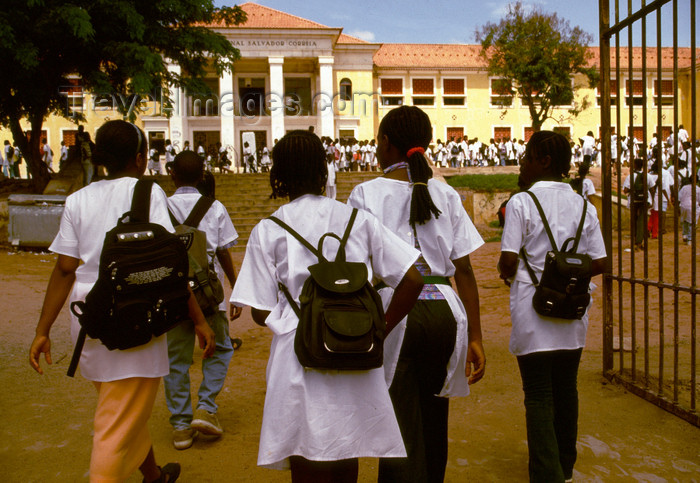
Angola - Luanda - students enter Salvador Correia high-school - education - Africa - estudantes no liceu Liceu Salvador Correia - images of Africa by F.Rigaud
Private universities in the country have received official clearance to raise tuition fees by approximately 20.74% for the upcoming academic year.
The adjustment, authorized by government decree, ties annual fee increases to the year-on-year inflation rate recorded each May.
This marks the third consecutive year that higher education institutions will align their pricing with inflation metrics. The policy aims to provide financial stability to institutions facing rising operational costs.
However, students and education stakeholders have voiced growing concern over the implications of this steep increase.
Eduardo Peres Alberto, president of the Higher Education Teachers’ Union, acknowledged the strain the hike may place on financially vulnerable students.
Speaking to Rádio Correio da Kianda, he said the decision was rooted in the need to “give greater sustainability and quality to higher education institutions” amid the sharp depreciation of the national currency.
Alberto also urged the government to subsidize part of the operational expenses of private institutions to mitigate the impact on students.
“Subsidizing would help prevent tuition hikes from becoming a barrier to education,” he added.
Political analyst Adálio Pereira described the government’s position as “uncomfortable,” emphasizing the challenge of balancing the survival of private institutions with the socioeconomic realities faced by ordinary citizens.
“The government finds itself forced to safeguard the interests of companies and the jobs of thousands of heads of families,” he noted.
Economist José Lumbo criticized the justification behind the tuition increases.
He argued that relying on fluctuating inflation to set prices could create instability and questioned whether such hikes were economically necessary.
“Even if year-on-year inflation is recorded, it does not always warrant abrupt tuition increases,” he said.
Lumbo also raised ethical concerns about the commercial focus of some universities.
“The quality of education is compromised when the university’s objective is to make a profit,” he remarked.
He warned that raising tuition fees during a period of widespread financial hardship could further restrict access to higher education and deepen inequality.
The looming fee adjustments have sparked a national debate over affordability, access and the role of private education in a volatile economic climate.



